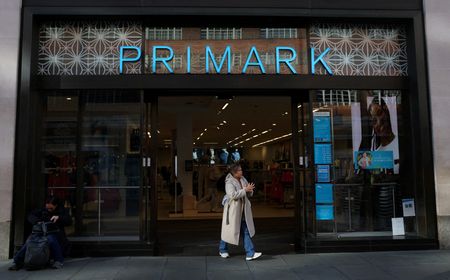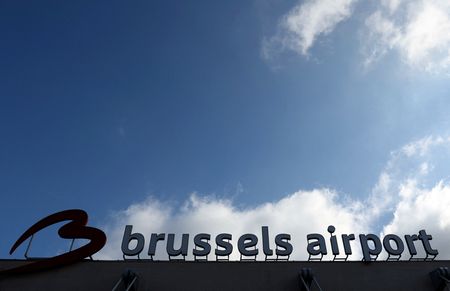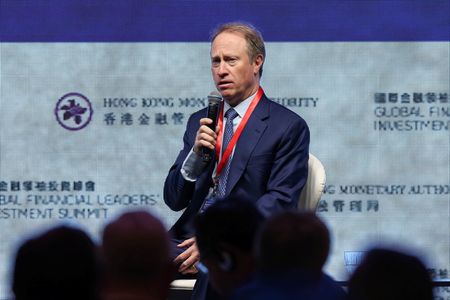By James Davey
LONDON (Reuters) -After decades of board resistance to spinning off Primark from owner Associated British Foods, a vacancy for a CEO at the fashion chain, along with its scale and growth potential, spurred a new review, the boss of its parent said on Tuesday.
George Weston, CEO of AB Foods since 2005, told Reuters there was a “fair likelihood” the review would see Primark separate from its food businesses – grocery brands such as Ovaltine, Ryvita and Twinings, as well as major sugar, agriculture and ingredients units.
He said that while Arthur Ryan, who founded Primark in Dublin in 1969, had no interest in public markets, the AB Foods board had looked at a demerger of Primark when he retired in 2009.
The board reviewed it again in 2019 when Primark was being led by Paul Marchant. “Thank goodness we decided not to, given what then happened with COVID,” said Weston.
“The benefit of the conglomerate structure was never more apparent as through that period of Primark shut downs we survived because of food cashflows,” he said.
PRIMARK SAW RAPID EXPANSION UNDER LAST CEO
In his over 15 years in charge of Primark, Marchant grew operating profit fourfold to over a billion pounds and more than doubled its store footprint.
But he resigned in March after he admitted to an “error of judgment” during an interaction with a woman in a social situation late last year.
The business is currently being run on an interim basis by Eoin Tonge, AB Foods’ finance director. A “number of candidates” are being considered, said Weston.
“We’re now in 18 markets (with 476 stores), we’ve got digital, we’ve all sorts of complexities and we’re looking for a new (Primark) chief executive,” he said.
“So now was a pretty good time to be asking that (demerger) question again.”
But he stressed that any separation was also about realising more value from the food businesses which he believes investors fail to fully understand.
“The food businesses are under appreciated and I think a separation would allow us to present those food businesses more clearly to people that had more underlying interest in them,” he said.
Shares in AB Foods were down 3.1% at 2,209 pence, giving a market capitalisation of 16.3 billion pounds. It traded as high as 2,410 pence last November. It reported on Tuesday a 13% drop in full-year profit driven by a weak performance in its sugar unit.
Analysts at Barclays said that while it was not a given that the end result will be a split, “there must now be a good chance this is the end game, not least because we would expect the majority of ABF’s shareholders to be supportive.”
If a demerger does happen it will follow Magnum Ice Cream’s spin-off from Unilever.
(Reporting by James DaveyEditing by Alexandra Hudson)










